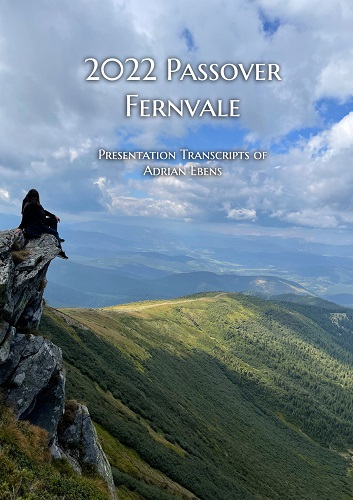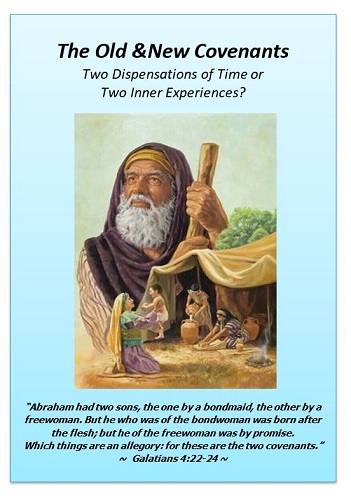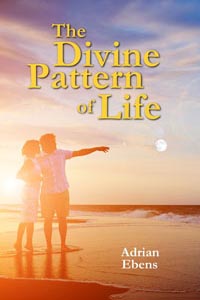Are only the `good' worth saving?
Posted Nov 27, 2011
by kym Jones
in Everlasting Gospel
6,684 Hits
In the English language, the word `love' has so many different meanings. Its usage ranges from the love which a man has for his immediate friends and family, to the activities which he loves to do; as well as the sensual love which is usually defined as erotica. Then there is also that very special form of love which is reserved for one's spouse, and bonds a man to a woman, so that the two become one in the union of marriage. This one word has so many different meanings! The Greeks understood this, and had as many as five different words which they believed define `love'. They are `eros', `phileos', `storge', `xenia', and `agape'.
`Eros' might be defined as `sensual love'. It is from `eros' that the word `erotica' is derived, and the Greeks depicted this as the love which a man has for a woman. We see this in the Roman pantheon, where Cupid, who was the equivalent of `Eros', the Greek god of love, is poised ready to strike arrows into our hearts. The Greeks took this sensual form of love and sought to elevate it far above the sensualism which they believed weighs it down into the material world in which we live, and believed that this unsullied form of love in its purest form is the `parousia' of the gods, and is that ecstatic elevation of consciousness which is achieved when we achieve union with them, for `eros' defines the very essence of the gods and is replicated in the love which a man has for a woman. The Greeks believed that it is so powerful, that it acts like a tsunami - it washes away all before it and carries all that is with it, for it is an irresistible force which impels us to procreate and have babies, so that this `original spark' upon which the entire universe revolves, might be incarnated in our children. But `eros' is capricious, just as the gods were depicted as being capricious; for though immortal - they shared in the baser emotions of pride, envy, and vengeance which all of humanity experiences, so that men were subject to the whim of the gods. This was known as fate!
`Eros' is dependent upon circumstance and is therefore conditional, for eros thrives when that magnetic spark of attraction exists between a man and a woman in a romantic situation; but when this wanes - so also does the relationship! Although `eros' can at times be exhilarating, it is notoriously fickle and dependent upon our sense of need. But just as all of the gods were in fact considered to be emanations of the one central Sun god, then therefore all of the gods were considered to be differing expressions of the dualistic One, who is considered to be both good and evil, and all the forms of love were represented in these lower deities.
While `storge' is not used in the Bible, it is a word which defines instinctive affection - for instance the affection which we have for our children, and animals have for their offspring. In extreme cases, it will sometimes lead us to die for the object of our affection, just as `eros will lead us to do the same thing.
Everyone has heard of Philadelphia, the city of brotherly love. It is derived from the word `phileos', and is the love of the fellowship of the friends which we enjoy being with. It is based upon the principle of water finding its own level - we are attracted to people we admire, like, and share commonalities with. But just as we tend to seek out those who are like us, so also do we tend to avoid and sometimes shun those who are unlike us - such as murderers, rapists and nasty government officials who would rather rape and pillage our pockets, than be friends with us! But just as `eros' is based upon a sense of need, so also is `phileos'. Some friends we keep for years; sometimes our entire lives - while others we grow apart from when we no longer have anything in common with them, and they become strangers to us. `Phileos' holds this in common with `eros'. While there is nothing wrong with these two forms of love, for this is the way we are `built'; both forms of love are in fact based upon `what's in it for me', or disguised selfishness.
`Xenia' is best regarded as the form of courtesy and respect which one shows to strangers, for the Greeks believed that there was a sacred obligation to show hospitality to travelers, which they in turn must reciprocate. It was customary for the host to give the guest a parting gift, which demonstrated that the host honoured and respected the guest, or traveler. While this ritual might seem strange to the western mind, the Greeks believed that the gods walked amongst them, and at any time they might be unknowingly entertaining a god, who would reward you for good or ill in accordance with how you treated the god. Therefore it was in your best interest to be courteous to strangers, for you never knew when the gods might test you! Zeus was sometimes referred to as `Zeus Xenios', or the `god of travelers'.
`Agape' was an obscure, little used word which took upon a new meaning when it became used in light of the context of the New Testament. While all of these other forms of love are conditional and are based upon a sense of need, `agape' is completely unconditional and is based upon the love which God has for us, instead of the love which we have for God, as our `natural' human love is fickle and changeable; whereas His love for us never changes! When the cross first demonstrated this kind of love to the world, it literally turned the world `upside down' (Acts 17: 6). When you were told of it, it either made a disciple of you, or an enemy of you. There was no sitting on the fence; for it relentlessly strips away our thin veneer of civility, and exposes all other forms of love as disguised selfishness, and is so stupendous in its breadth that it even dares to die the `second death' (Revelation 2: 11). While the Greeks believed that only the good are worth saving, the Bible declares that none are good, and:
` . . . . God commends his love toward us, in that, while we were yet sinners, Christ died for us' (Romans 5: 8.)





